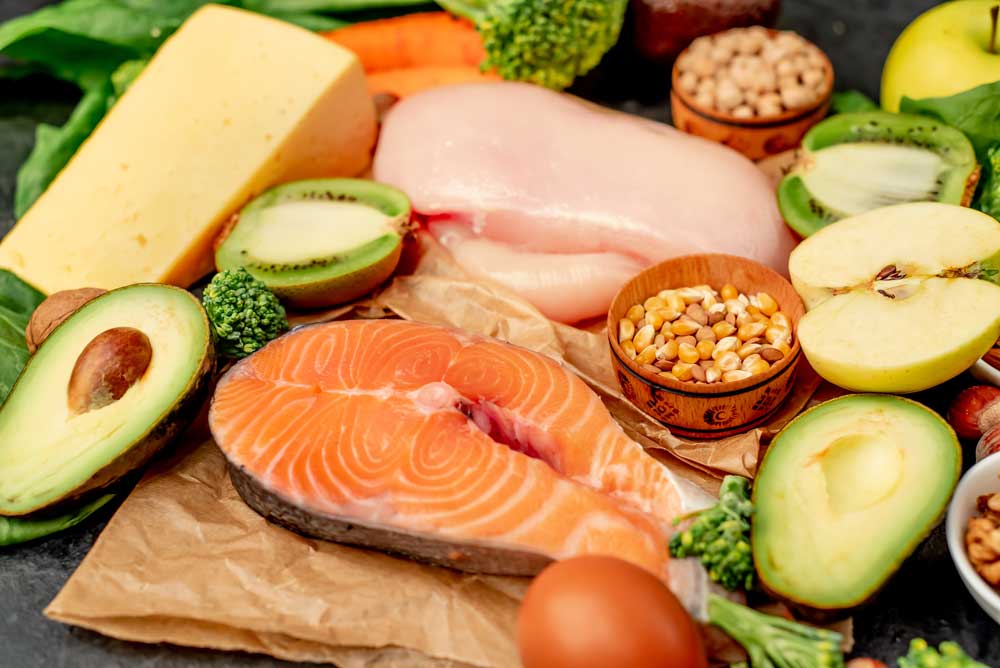When there’s a discussion about food and diet, two factors always come into play – the first is calories, and the second is nutrition. They’re both important, but serve completely different purposes. To find out what works for you and incorporate both concepts into your diet plan effectively, it is first vital to understand what these terms mean:
What Are Calories?
Very simply put, a calorie is a unit of energy. All food and beverages contain calories, except water, which has zero calories. This is why food is essential to keep your body’s energy levels intact. Calories are burned or spent with physical activity, so it is essential to keep replenishing them. However, calories also add weight to the body. When you consume more calories than you burn, it results in weight gain. This is called a caloric surplus. When you consume fewer calories than you burn, it results in weight loss. This is called a caloric deficit. When your calorie consumption and expenditure are the same, your weight remains the same as well. This is called caloric maintenance.
What Is Nutrition?
Nutrition refers to how food affects the body in areas such as growth, development, and immunity building. There are various nutrients that are part of the human diet, such as carbohydrates, fats, proteins, vitamin,s and minerals. Each of these nutrients influences bodily functions in different ways, right from muscle-building to disease risk reduction.
Should I Prioritise Calories Or Nutrition?
This depends entirely on your individual body type and overall health, and circumstances. In a nutshell, calories impact weight management, while nutrition impacts health management. Nutritionist Dr Devika Kurien gives us the lowdown:
1. A food may be nutritious, but if it makes you consume more calories than you burn, you’ll gain weight. Let’s take an avocado. A 100-gram serving contains approximately 160 calories. In contrast, 100 grams of apple contain just 52 calories. This doesn’t mean the avocado is bad – it is nutrient-dense with healthy fats, fibre, and various vitamins (B, C, K, and E) and minerals (potassium and magnesium). It just means you’ll have to work harder to manage your weight and burn the extra calories.
2. Calorie-counting is a more quantifiable goal than keeping track of nutrients. It’s easier to plan your meals, eat mindfully, and monitor progress. You feel accountable and will think twice before you reach for that piece of cake or bag of chips.
3. On the other hand, some foods are great for you even if they are high calorie. They go a long way in the prevention of ailments and health management. These include fatty fish such as salmon, flaxseeds and chia seeds, peanuts and walnuts, and dairy. Valuable nutrients such as Omega 3 fatty acids, protein, calcium and antioxidants are present, which can reduce the risk of chronic diseases like heart ailments and diabetes, regardless of how many calories they contain. They also help with feelings of satiety instead of deprivation.

4. Not all low-calorie foods are good for you. What you consume affects your gut health, body inflammation, and even your insulin sensitivity. It can disrupt your hormones and leave you feeling lethargic with hunger cravings. Low-fat sweetened yoghurts are advertised as healthy, but they can be harmful despite the low-calorie content because they rely on added sugars. Processed meats – even low-fat ones like turkey and chicken – can be high in sodium, making them unsuitable to consume on a regular basis.
Finding The Balance
Here are some pointers from Dr Devika towards managing nutrition and caloric intake effectively.
1. In an ideal scenario, you would only pick foods that are nutrient-dense but low in calories. These include leafy greens, cruciferous vegetables, berries, and unprocessed lean meats. In a bid to lose weight, do not count protein bars and sugary cereals as part of this meal plan. Only opt for whole foods. According to a study published by the Journal of the American Medical Association (2018), a study showed that nutrient quality was more predictive of weight loss than macronutrient ratios or calorie counts.
2. Completely steer clear of foods that have no nutritional value, even if they are low in calories. Read labels thoroughly before you purchase packaged foods to find out what you’re putting inside your body. Beware of beverages such as juices and alcohol, which are just empty calories.
3. In moderation, consume some foods that are high calorie but also nutrient-dense, such as whole grains and healthy fats. If your food is nourishing, you’ll feel satisfied and lose weight without intentionally restricting yourself. Prioritise whole foods and get enough protein and fibre.
4. If you have obesity issues and calorie tracking is essential, seek help from a qualified doctor or nutritionist before you decide on a diet plan. Similarly, if you suffer from any specific ailments, consult a qualified medical professional on how to proceed.
5. Allow yourself the occasional treat, which can help prevent you from bingeing.